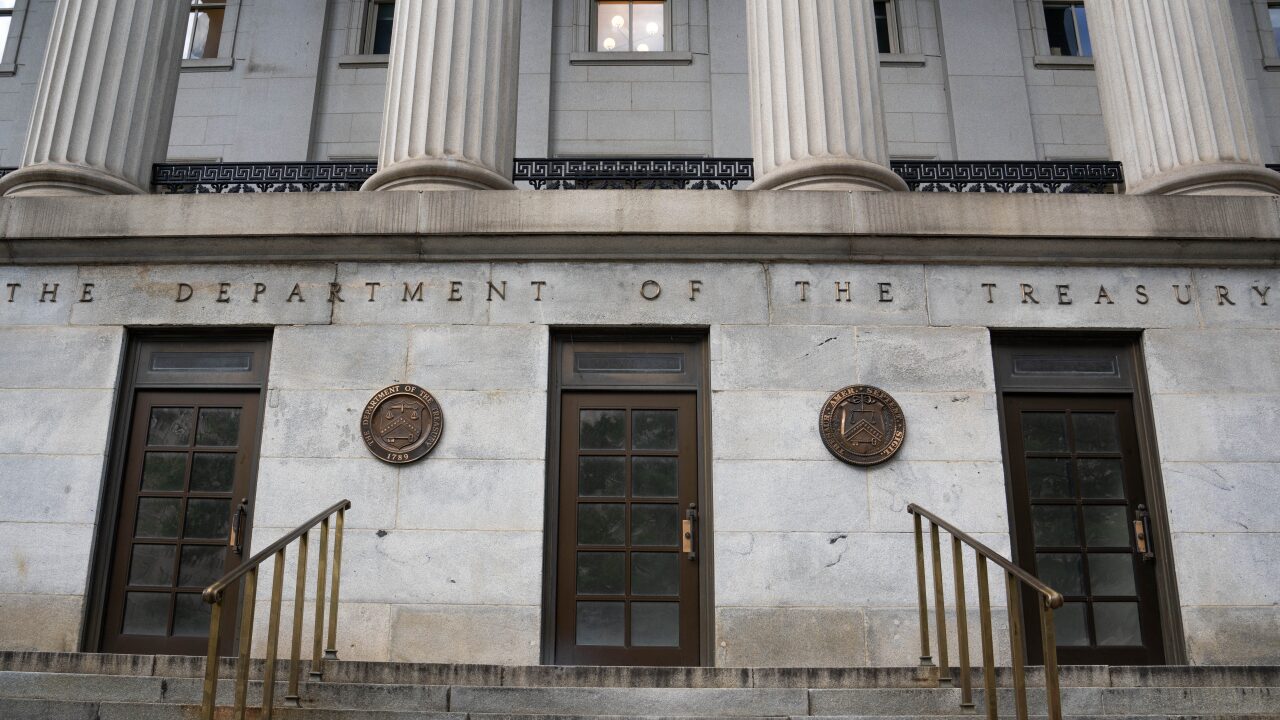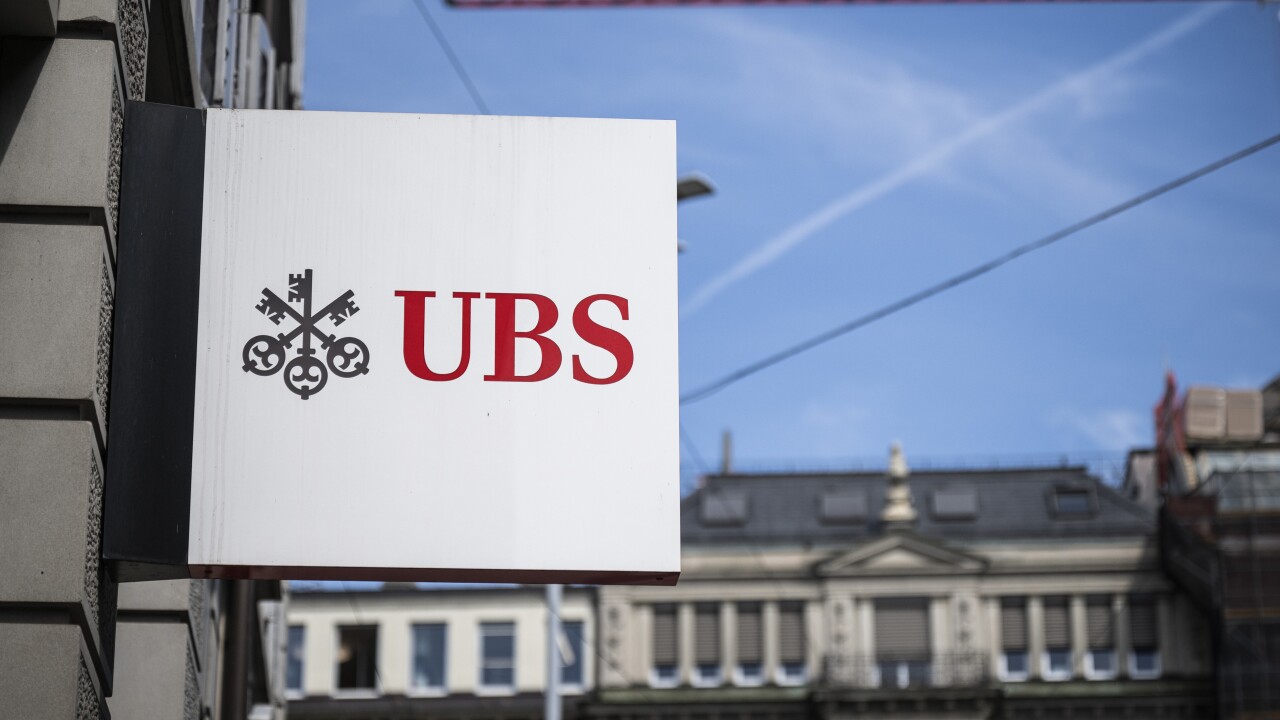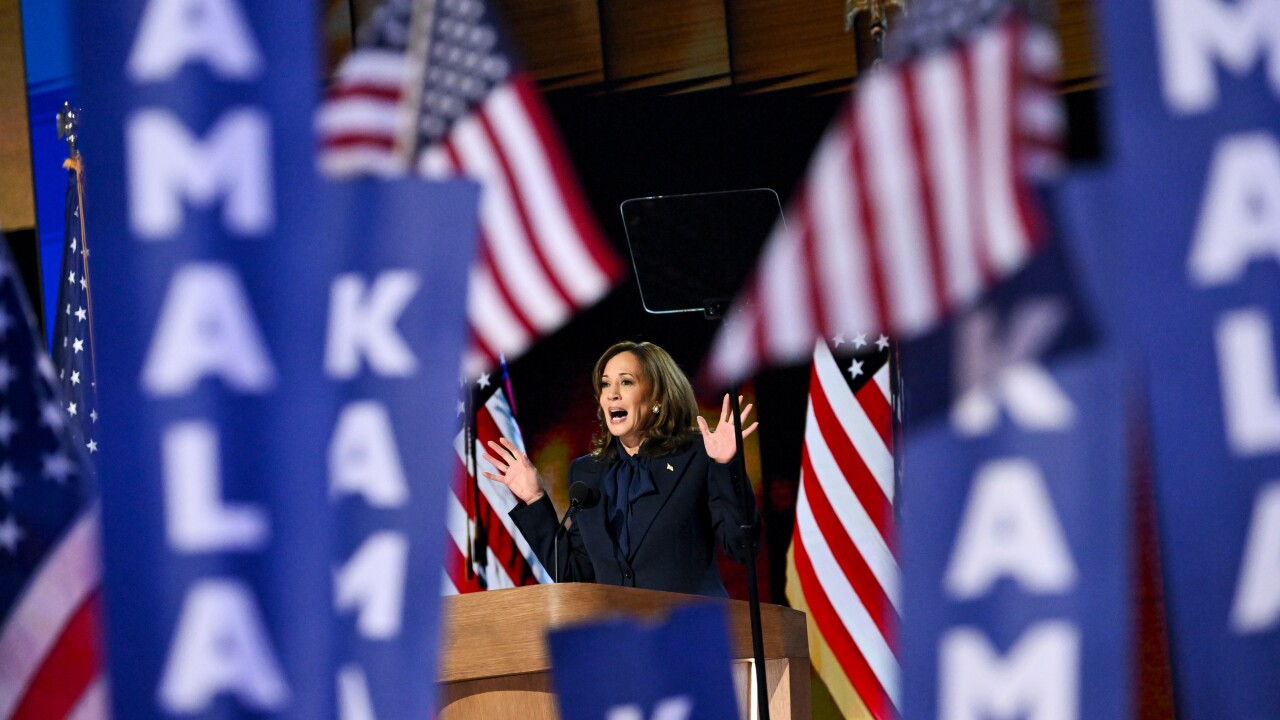-
More than 91.7% of the portfolio loans were extended to dentists, general medical practitioners or veterinary surgeons—considered prime obligors.
September 3 -
Only loans from the Achieve Personal Loan product line are in the current collateral pool.
August 30 -
Observers and investors weigh in on how rate cuts may shift pricing dynamics for CLO tranches.
August 30 -
Home Loan bank executives said Congress would have to pass a law for the system to increase its affordable housing contribution above 10% of earnings.
August 30 -
Treasuries have returned 1.7% this month through Aug. 28, on pace for a fourth straight monthly gain, according to the Bloomberg US Treasury Total Return Index.
August 29 -
Overcollateralization, subordination of the junior notes, a non-declining cash reserve account and excess spread provide credit enhancement to the notes.
August 29 -
Since 2019, the portfolio has recorded five defaults—driven by bankruptcies—and each was resolved with a 100% recovery rate, Fitch said.
August 29 -
In the blue-chip bond market, a democratic victory would be supportive for basic industry, capital goods and utilities sectors, but a negative for telecoms, technology, banks, and autos.
August 28 -
The 1,055 loans in the pool are primarily non-qualified mortgages and loans that are exempt from ability-to-repay rules, which represent 36.4% and 43.87% of the pool, respectively.
August 28 -
Canadian asset-backed commercial paper issuers eye chance to narrow massive financing gap created by the CDOR benchmark cessation.
August 28 -
Indexes from Goldman Sachs Group Inc. that track trading strategies for each party show the Democratic one started outperforming the Republican one right around the time Biden stepped down as candidate.
August 27 -
The transaction has a nine-month revolving period. All of the leases are closed end, where the issuer bears the residual value risk, and more of them can be added during that period.
August 27 -
The Canadian lender's cushion for potential credit losses nearly doubled in the third quarter, while its U.S. business idled.
August 27 -
Lower interest rates could bolster loan demand, credit quality and securities portfolios. But they could also curb lending profitability faster than they ease deposit costs, crimping net interest margins and eating into near-term profits.
August 26 -
The concentration of electric vehicles also reached 17.8%, an increase from 15.3% in the 2024-B deal.
August 26 -
It is the third deal from the WOART program for the year, and could be upsized to $1.2 billion.
August 23 -
The ideas, which are still being hashed out, include lowering fees associated with issuances and simplifying audit requirements.
August 23 -
Total initial credit enhancement includes over-collateralization representing 8.95% of the initial pool balance, which is expected to build to a targeted level of 13.95%.
August 22 -
Aside from a $2 million penalty for violating the servicing laws, but the order included told Fay Servicing to pay consumers $3 million in redress and make a $2 million capital investment updating its servicing technology and compliance management systems.
August 21 -
Among the credit challenges, is the lack of amortization on the loans, and the loans are heavily concentrated among states and MSAs.
August 21



















